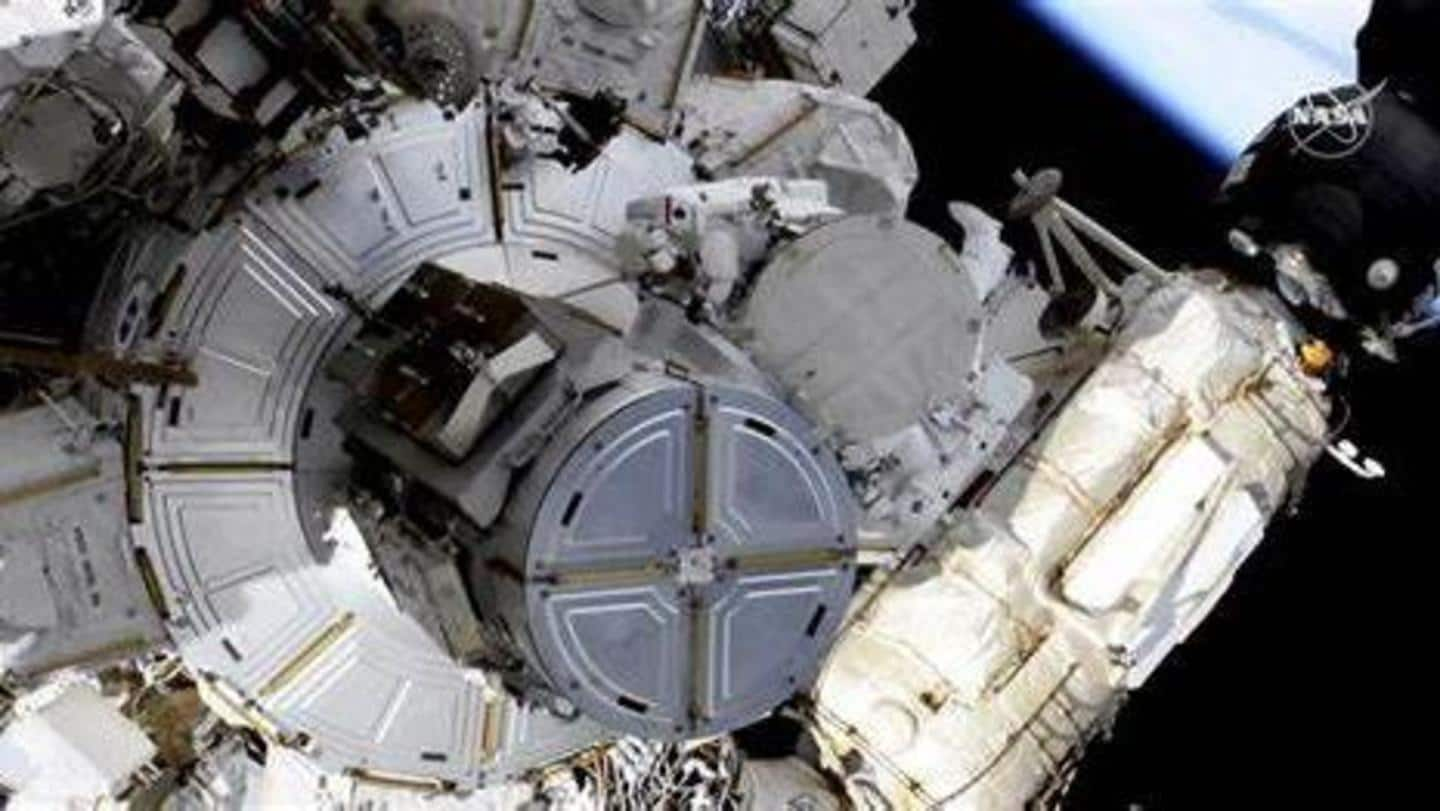
Spacesuit concerns briefly interrupt spacewalk to install solar panels
What's the story
Spacewalking astronauts resumed work to install powerful, new solar panels outside the International Space Station on Wednesday, after a brief interruption caused by problems with one of their suits.
NASA stressed that astronaut Shane Kimbrough was safe the entire time, despite problems with his suit's display control panel and a potential pressure issue.
Details
Fleeting pressure spike was noted in the suit's cooling system
Mission Control sent Kimbrough back into the station's airlock three hours into the spacewalk where he successfully restarted the blank display panel on the front of his suit. Then a fleeting pressure spike was noted in the suit's cooling system.
Kimbrough rejoined French astronaut Thomas Pesquet at the worksite, and Mission Control gave them the all-clear to proceed with their work.
Information
A Russian film crew will visit the space station
It's the first of a series of spacewalks to equip the aging orbital outpost with smaller but stronger solar wings. The electrical boost is needed to accommodate the paying passengers expected to drop by, beginning with a Russian film crew this fall.
Precautions
The duo worked on the station's primary power grid
NASA put extra safety precautions in place as Kimbrough and Pesquet worked on the station's primary power grid, to avoid an electrical shock.
The duo conducted the most hazardous parts of the spacewalk on the nighttime side of Earth, to prevent the station's old solar panels from soaking up sunlight and generating power.
Metal surfaces on their spacesuits were covered to avoid any contact.
Solar Panels
Second solar panel to be installed on Sunday
Launched by SpaceX earlier this month, the first of these new solar panels were going to be installed alongside the station's oldest electricity-producing wings, in continuous operation for more than 20 years.
Pesquet and Kimbrough will go back on Sunday for the second solar panel installation. Four more will be launched to reenergize the space station.
Design
Solar panel designed to roll out like a red carpet
The astronauts had to lug the folded-up solar wing 10 feet long and four feet wide to the worksite on the far-left end of the station.
Once anchored in place, the solar panel was designed to roll out like a red carpet. It was expected to take six minutes to extend to its full 63 feet (19 meters) in length.
Space market
Tourists are expected to boost the private space market
NASA wants to keep the space station churning out science research through this decade, and space tourists will further tax the power system.
A Russian movie director and actress are due to visit in October for filming, followed by wealthy entrepreneurs launching from Kazakhstan and Cape Canaveral as part of a push to open up the private space market.